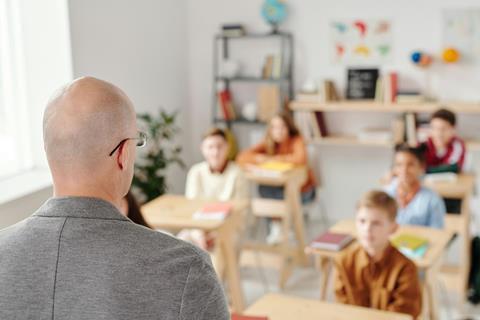James Mildred explains the main pros and cons of the new government legislation on sex and relationships education

The government has finally published new, statutory guidance on the delivery of Relationships, Sex and Health Education (RSHE) in primary and secondary schools. It replaces earlier guidance from 2019 and is due to come into force from September 2026. Here is what parents should know.
In the Christian worldview, parents have the primary responsibility to raising children. Some parents choose to devolve some of this responsibility to teachers and schools, without abandoning it completely. Others prefer Christian schooling or home schooling. Whatever option, the fundamental point remains: God has granted primary authority and responsibility for children to their parents.
When it comes to RSHE, Christian parents are rightly concerned because it is a subject area where orthodox, historic, Christian teaching challenges and contradicts attitudes and beliefs in contemporary society.
For some time there has also been growing alarm at the content of RSHE lessons
Since 2020 when the law changed, primary schools must teach relationships education and secondary schools must also teach sex education. Health education is mandatory in both state primary and secondary schools. Thankfully, parents still have the right to withdraw from sex education, albeit this right has been watered down since 2020. There is currently no right to withdraw from relationship or health education.
When these changes were introduced, they were highly contested. CARE was one of a number of organisations who lobbied and worked closely with MPs to ensure some form of right to withdrawal from sex education in secondary schools remained in place.
For some time there has also been growing alarm at the content of RSHE lessons. In particular, the use of third-party teaching materials was the focus for parental angst. Parents were being blocked from seeing the materials their children were being exposed to, leading to accusations of secret sex education lessons. Schools would frequently cite concerns about copyright, with the argument being that the school had to protect the rights of the third-party provider from their work being copied. There were also reports of schools teaching things like gender ideology without fairly representing other views.
The backlash against the secrecy of third-party lesson providers and stories of inappropriate content is what has led to this updated guidance.
The good news about the new legislation
Firstly, here is the good news. Schools are still expected to respond positively to parental requests to see materials and they should consult parents on developing and reviewing their RSE policies. The legislation says that “schools should take steps to pro-actively engage parents and make sure they are aware of what is being taught in RSHE. These steps might include inviting parents into school to discuss the curriculum content and the importance of RSHE for wellbeing and safety, inviting them to discuss any concerns, and supporting parents in managing conversations with their children about RSHE topics. Schools must consult parents when developing and reviewing their RSE policies.”
Read more:
5 ways Christian parents can engage with sex and relationships education in school
Homeschooling has its benefits for Christian families but it’s not for everyone
It also explicitly says that copyright clauses cannot be used to block transparency: “There is a public interest in parents being given the opportunity to see materials used in RSHE teaching if they would like to. When contracting with external providers, schools should not agree to any contractual restrictions on showing parents any content that the school will use. Schools should communicate to providers that they are legally obliged to have regard to this statutory guidance, including the expectation that all content can be shared with parents.”
In another welcome change, the new guidance says that where contractual clauses with third-party providers still exist that seek to stop schools sharing materials with parents, they are: “void and unenforceable.”
The other main piece of positive news is that the guidance does say schools with a religious character may teach their distinctive faith perspective on relationships and “balanced debate may take place about issues that are contentious. For example, the school may wish to reflect on faith teachings about certain topics.”
Some concerns
There are however some aspcts of the new legslation that are concerning. For example, there used to an explicit ban on teaching on gender identity. Earlier guidance said “Schools should not teach about the broader concept of gender identity.” Sadly, in this latest version of the guidance, this section has been removed, although the guidance does say schools should not teach that everyone has a gender identity. When teaching on transgender issues, the new guidance says: “schools must be mindful that beyond facts and the law about biological sex and gender reassignment, there is significant debate and they should be careful not to endorse any particular view or teach it as fact.”
In other words, a clear ban has been watered down and compromised into guidance that will muddy the waters and leave schools to interpret it in different ways. It leaves open the option for schools to teach that a child socially transitioning away from their biological sex is a legitimate option.
Parents should also be aware that the new guidance contains some updates regarding sexuality. In a previous version of the guidance, the wording used was: “Primary schools have discretion over whether to discuss sexual orientation or families with same-sex parents.” But this has been replaced by: “We strongly encourage primary schools to teach about healthy loving relationships and to include same-sex parents along with other family arrangements when discussing families.”
Again, clarity has been replaced with confusion.
Overall, it is very positive that the new guidance does away with secret sex education lessons. It is also good that the guidance around parental involvement with RSHE has been strengthened. However, parents should be aware that the guidance contains worrying advice for schools when it comes to LGBT content and teaching on gender identity.































